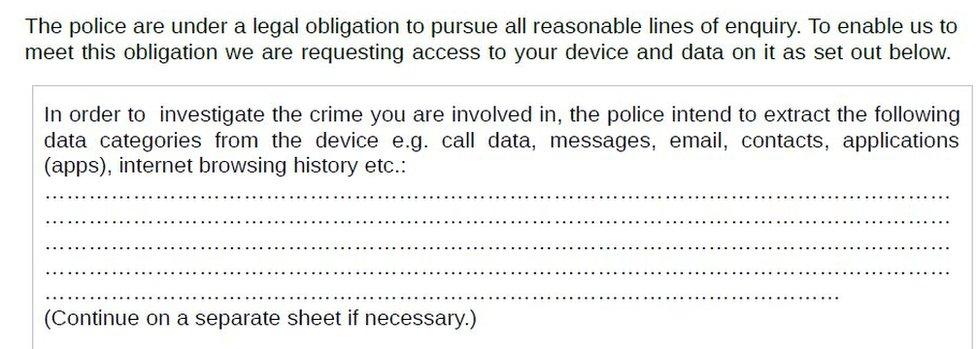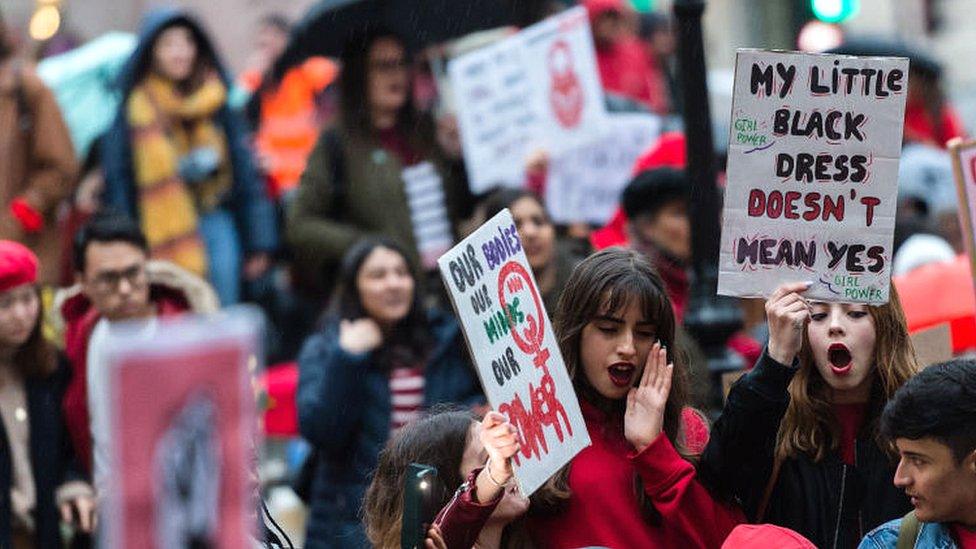Scrap 'digital strip search' say police bosses
- Published

Police bosses are urging the Crown Prosecution Service to scrap a policy of asking crime victims in England and Wales to hand over their phones.
The digital consent forms ask victims of crime - including rape complainants - to hand over their phones so officers can look for evidence.
If victims do not comply, prosecutions may not go ahead.
The Crown Prosecution Service (CPS) says sexual assault victims are not being "singled out".
But the Association of Police and Crime Commissioners say the forms should be withdrawn.
The forms - which have been introduced in all 43 police forces in England and Wales - ask for permission to view data including messages, photographs, emails and social media accounts.
Victims' groups say they amount to a "digital strip search" - and now, police commissioners say they could lead to a loss of confidence in the criminal justice system.
The APCC's Dame Vera Baird told the Observer - which first reported the story, external - that material unconnected to the case was being used to discredit complainants.
And the group's Julia Mulligan added that it was "truly awful" that victims needed to "expose oneself to this in return for an investigation".
Police and crime commissioners are elected officials who hold their chief constables to account.
The BBC's Simon Jones said such "stark criticism of the police" was unusual from them, but "reflects unease about what some have labelled a choice between privacy and justice".
'Not singled out'
The forms were introduced in response to the disclosure scandal, when several court cases collapsed after crucial evidence emerged at the last minute.
The police and the CPS say the forms will only be used when relevant, and they have invited victims' groups to help improve the form.
"It is not true that sexual assault victims are being singled out and forced to hand over their phones," they said in a joint statement.
"They are potentially relevant to all case types and the need to pursue relevant lines of enquiry in digital devices is not new.
"We are very clear that devices should only be looked at when relevant and private information not connected to the case must not be shared with the defence or shown in court."
They added that the forms made it clear that consent was "only being requested when pursuing a reasonable line of enquiry".
"The dreadful stories from victims this week demonstrate exactly why we have been so keen to introduce a clearer, more consistent approach to gaining consent for accessing data," they added.

A screenshot of part of a consent form for 'digital device extraction', provided by the National Police Chiefs Council
- Published29 April 2019

- Published27 May 2022

- Published24 January 2018
